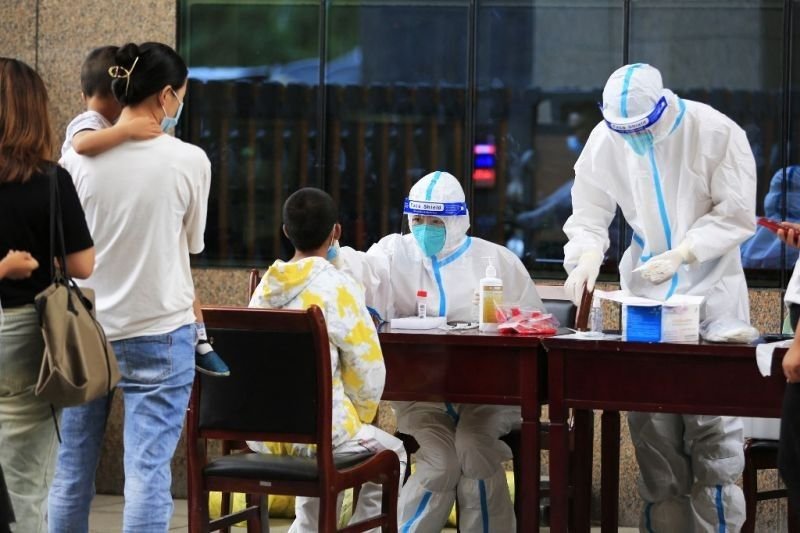New Delhi, 10 June 2025: In a recent development for India’s ongoing battle against Covid-19, the country reported 783 new recoveries in the past 24 hours, according to the latest update from the Ministry of Health and Family Welfare (MoHFW). The data reflects a hopeful trend as the total number of active cases in India has shown signs of stabilization, even as isolated surges continue in some regions. Notably, Delhi saw a drop of 37 active Covid-19 cases, offering a glimmer of relief for the national capital. As of 8 AM on Tuesday, India’s total active Covid-19 caseload stood at 6,815. In the same 24-hour window, 324 fresh cases of the virus were detected across the country, reinforcing the importance of continued surveillance and public health measures.
Covid-19 Cases in India: Current Numbers and Daily Update
India has been closely monitoring the status of Covid-19 infections through extensive testing, surveillance, and prompt reporting. As per the official MoHFW data, 324 new infections were recorded over the last 24 hours. Although the numbers remain relatively low compared to the peak phases of the pandemic, health officials continue to urge caution, especially with the emergence of new variants and fluctuating case counts in urban hubs. Alongside the 324 new cases, three Covid-related fatalities were reported—one each from Delhi, Kerala, and Jharkhand—bringing renewed focus to the need for preventive measures among high-risk populations. With a daily positivity rate still under 1%, India’s testing infrastructure continues to play a pivotal role in identifying cases quickly and limiting the spread.
Delhi Sees a Decline in Active Cases: Sign of Improvement or Just a Phase?
In Delhi, a city that has been at the epicenter of multiple Covid-19 waves in the past, the reduction of 37 active cases signals progress, but experts advise against complacency. While the capital has ramped up testing, isolation protocols, and vaccination drives, the challenge remains to maintain public discipline in terms of mask-wearing, hand hygiene, and avoiding overcrowded spaces. Delhi’s health department also continues to push for booster vaccinations among vulnerable groups and healthcare workers. Although hospitalization rates remain low, the authorities have kept Covid wards on standby in major hospitals to respond quickly if there’s a sudden surge.
Covid Recoveries Outpace New Infections: What This Means for India’s Public Health Strategy
One of the more encouraging aspects of the current Covid-19 trend in India is that recoveries have outpaced new infections for several days now. With 783 people recovering in the last 24 hours alone, the recovery trajectory continues to offer hope. This pattern indicates that most cases are being managed effectively through home isolation and timely treatment, reducing the burden on healthcare facilities. States have been advised to maintain adequate stockpiles of antiviral drugs, oxygen supply, and emergency beds, even as ICU admissions remain rare. Public health experts emphasize the need for periodic reviews of district-wise preparedness and active surveillance for severe acute respiratory infections (SARI) and influenza-like illnesses (ILI) in both rural and urban areas.
Three New Deaths Reported: Why Senior Citizens and High-Risk Individuals Should Stay Vigilant
Despite the relatively low number of new infections, the three fresh Covid-related deaths underline the lingering threat of severe illness, especially among the elderly and immunocompromised individuals. Health authorities have stressed the importance of protecting those with co-morbidities, including heart disease, diabetes, and respiratory disorders. All three deaths reported in the last 24 hours were associated with existing health complications, further validating the push for timely medical intervention and booster doses. Family physicians and primary health centers have been instructed to increase community awareness regarding early symptoms, testing facilities, and the need for early hospitalization if warning signs such as breathlessness or high fever appear.
Vaccine Coverage and Booster Uptake: Where India Stands Today
India’s Covid-19 vaccination program, which has administered over 2.2 billion doses so far, continues to be one of the largest in the world. However, health experts have raised concerns over the declining uptake of booster or precaution doses, particularly among the elderly and healthcare workers. With waning immunity and the possible emergence of new SARS-CoV-2 variants, the Indian government has reiterated the importance of full vaccine coverage. Many states have launched fresh awareness campaigns to encourage precautionary doses, especially in light of the summer season when respiratory infections tend to spike. The CoWIN platform remains active for vaccine bookings, and walk-in vaccination at government health centers is also being promoted to boost numbers.
Covid Surveillance Measures Still in Place as WHO Warns Against Complacency
While India is not witnessing any massive outbreak currently, the World Health Organization (WHO) has repeatedly warned that Covid-19 is far from over and the virus continues to evolve. India’s health authorities are therefore maintaining strict surveillance at airports and international ports of entry. RT-PCR testing is being carried out selectively for passengers arriving from countries with known Covid surges or variant outbreaks. Genome sequencing has also been increased to track mutations and emerging variants. As part of the Integrated Disease Surveillance Programme (IDSP), states have been directed to report clusters of respiratory illness immediately and ramp up sample testing.
The latest data on Covid-19 in India, including 783 new recoveries and a reduction of 37 active cases in Delhi, paints a cautiously optimistic picture. With total active cases standing at 6,815 and daily infections relatively low, it might seem like the country is finally past the worst of the pandemic. However, the three new fatalities and ongoing risk for vulnerable populations serve as a reminder that the threat is not entirely gone. Health experts continue to advise the public to follow Covid-appropriate behaviour, remain updated on their vaccination status, and report any symptoms promptly. India’s public health machinery is prepared but not invincible; individual responsibility remains the cornerstone of pandemic management in the post-peak phase. As the situation evolves, staying informed and taking preventive steps will be crucial to ensuring that these gains are not lost.






